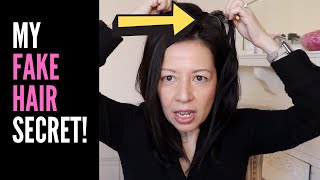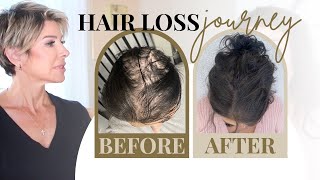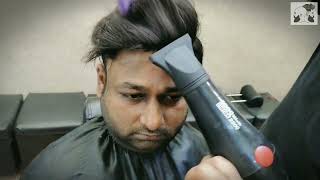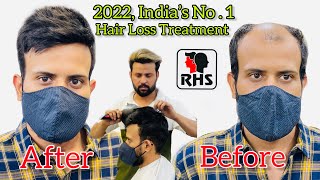Could Your Birth Control Be Contributing To Hair Loss?

Call me crazy but though I’m not against family planning, I’m not crazy about contraception. Now don’t get me wrong, I know that planning your family and ensuring that everything is in place before you usher in miniature versions of yourself is very important.
I just think with all the side effects associated I might as well resort to ancient plant based, natural methods like civilizations before us did (I reckon it can’t be any worse than the side effects that the modern methods list); but that’s just me.
Why am I talking about contraception on a hair site? Well, I found that there is a link between contraception and hair loss. It can actually trigger hair loss so you might want to check if you are at risk. Could your healthy hair journey be held captive by your birth control?
Now you’ve no doubt seen a number of our posts outlining possible causes of hair loss. We even talked about the possibility of prenatal vitamins* contributing to hair loss in women who have a hypersensitivity to hormone changes. When it comes to hair loss the truth is that just about any drug can cause hair loss.
The Link Between Birth Control, Androgens and Hair Loss
Hair loss may be drug induced or birth control may enable or facilitate female pattern genetic hair loss also called androgenic alopecia.
While there are no scientific studies that conclusively support the theory that birth control contributes to hair loss, most birth control methods list hair loss as a side effect and if you ask your doctor about hair loss in relation to Depo- Provera it is highly likely that he/she will confirm that it is commonly linked with hair loss.
In women who come from families with a genetic history of hair loss issues a group of hormones called androgens interfere with the normal healthy growth cycle of the hair.
Have you ever heard of DHT? Well that is essentially what the androgens produce and this is what causes the hair follicles to shrink and release the hair before it completes the natural cycle of life. The DHT also impacts the new hair follicle which will grow in place of the shed one so much so that instead of the new follicle coming in you may have a long battle with bald spots in the affected areas.
Modern Contraceptive Methods Cause Telogen Effluvium. What’s That?
We know that the hair has a life cycle: anagen, the growth stage, telogen also known as the resting stage and catagen, the shedding phase.
The way that birth control triggers hair loss is by causing a condition known as telogen effluvium in which normal healthy growing hair is moved from the anagen stage and fast tracked to the telogen or resting stage which lasts anywhere from 2-3 mths. After this they are shed in the catagen stage and the growth process starts all over again.
The anagen stage should be anywhere from 3-7 years but when the birth control takes aim at the hair this growth stage can be shortened considerably, causing you to either lose fistfuls of hair quite often and make you think your hair can never grow. Normally there is anywhere from 10-15% of hair in the telogen stage, but birth control usually escalates this to at least 50%. This can either happen at the start of birth control, while switching or if you choose to stop altogether.
The Hormone In Your Birth Control To Watch Out For
The culprit in the birth control which causes hair loss is the very hormone that is used to suppress the natural cycle of how the womb functions.
Usually contraceptives have the hormones progestin and estrogen.
These hormones are in your body and help prepare your body to nurture a fertilized egg and support pregnancy, but when you don’t get pregnant they assist the process of menstruation. Hormonal drugs like the contraceptives basically provide an atmosphere to create a constant supply of these hormones to trick the body so you don’t get pregnant.
The problem is that the progestin or progesterone is the very hormone that brings on hair loss and you will be affected if you are genetically predisposed to hair loss.
If you have genetic hair loss and you use a birth control method that has a higher ratio of progesterone to estrogen, that may very well be contributing to your hair thinning or hair loss.
In light of this, the American Hair Loss Association (AHLA) advises that women who know they have a genetic predisposition for hair loss, use non-hormonal forms of birth control or at least seek out the methods that have a low androgen index. In other words, switching to a pill that has higher levels of estrogen to progesterone could help reverse your hair loss.
Thinking It Over
All things considered, it is ideal that your health takes precedence over your need for aesthetic beauty, but it is understandable that you would want to protect yourself from unplanned pregnancies – and the situations that come with that- and have fabulous hair too.
The way to have your cake and eat it in this case, is to either seek out non-hormone methods or try the ones with the lowest or no androgen index. You might even research some of those natural methods I hinted at earlier to see if you find something that works for you or your partner (since natural methods seem to provide options for men as well).
Whatever you decide, consult a qualified medical doctor or naturopath before quitting your birth control. At least now you have the information you need to make the necessary assessment and decide what is right for you.





